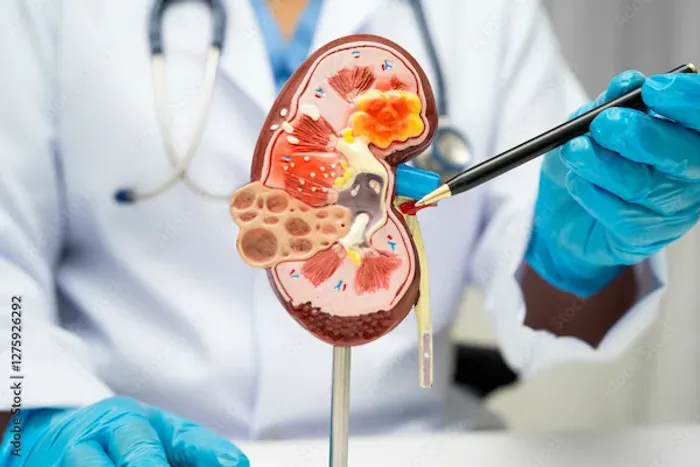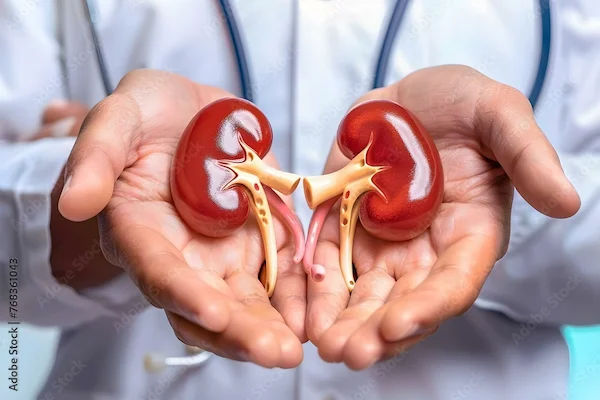After Kidney Transplant How Many Days Needed To Recover?
Learn how many days it takes to recover after a kidney transplant. Discover key recovery phases, post-surgery care tips, and how to support healing for a healthy, active life.

Written by
Last updated on 13th Jan, 2026

Introduction
A kidney transplant is a life-changing procedure that offers a new lease on life for patients with end-stage kidney disease. However, recovery after the surgery is a gradual process that requires patience, care, and medical supervision. If you or a loved one has recently undergone a kidney transplant, you may wonder, "How long does it take to recover fully?" This article will guide you through the recovery timeline, what to expect at each stage, and how to support healing for the best possible outcome.
Understanding Kidney Transplant Recovery
Recovery after a kidney transplant varies from person to person, depending on factors like:
Overall health before the transplant
Age and fitness level
How well the new kidney functions
Any complications during or after surgery
Generally, the recovery process can be divided into three phases:
1. Immediate Recovery (First Few Days to a Week)
After the surgery, you will spend 3 to 7 days in the hospital under close medical supervision. During this time:
Pain and discomfort are common, but medications will help manage them.
The new kidney starts functioning, sometimes immediately, sometimes gradually.
Doctors monitor for complications like infection, bleeding, or rejection.
You’ll begin taking immunosuppressants (anti-rejection medicines) to protect the new kidney.
2. Short-Term Recovery (First 3 to 6 Months)
Once discharged, full recovery takes weeks to months. Key aspects include:
Frequent follow-up visits (weekly at first, then less often).
Strict medication adherence. Missing doses can lead to organ rejection.
Gradual return to daily activities, but avoiding heavy lifting or strenuous exercise for 6-8 weeks.
Dietary adjustments like limiting salt, sugar, and processed foods to support kidney health.
3. Long-Term Recovery (6 Months to 1 Year and Beyond)
By 6 months, most patients feel significantly better, but full recovery can take up to a year or longer. During this phase:
Immunosuppressant doses may be adjusted based on kidney function.
Regular blood tests and check-ups continue to monitor for rejection or side effects.
Most patients return to work and normal activities, but with precautions to avoid infections.
Factors Affecting Recovery Time
Several factors influence how quickly you recover:
Age & Overall Health: Younger, healthier patients often recover faster.
Type of Donor Kidney: A living donor kidney usually starts working faster than a deceased donor kidney.
Complications: Infections, rejection episodes, or surgical issues can delay recovery.
Lifestyle Choices: A balanced diet, light exercise, and avoiding smoking/alcohol help healing.
Consult Top Nephrologists
Tips for a Smooth Recovery
To ensure the best possible recovery, follow these guidelines:
1. Take Medications as Prescribed
Never skip anti-rejection drugs. They prevent your body from attacking the new kidney.
Set reminders to avoid missing doses.
2. Eat a Kidney-Friendly Diet
Limit salt, sugar, and processed foods.
Stay hydrated (unless your doctor advises otherwise).
Eat lean proteins, fruits, and vegetables to support healing.
3. Stay Active (But Don’t Overdo It)
Light walking helps prevent blood clots and improves circulation.
Avoid heavy lifting for at least 6-8 weeks.
4. Prevent Infections
Wash hands frequently.
Avoid crowded places initially.
Stay up-to-date on vaccinations (as advised by your doctor).
5. Monitor for Warning Signs
Contact your doctor immediately if you notice:
Fever, chills, or flu-like symptoms
Swelling, pain, or reduced urine output
Sudden weight gain (could indicate fluid retention)
When Can You Return to Normal Life?
Most patients can:
Return to work in 6-12 weeks, depending on job demands.
Resume light exercise (walking, yoga) after 6-8 weeks.
Travel after 3-6 months, but check with your doctor first.
However, avoid contact sports or heavy physical labour to protect the new kidney.
Conclusion
Recovery after a kidney transplant is a journey that requires time, discipline, and medical support. While the first few weeks are the most critical, full recovery can take up to a year. By following your doctor’s advice, taking medications on time, and maintaining a healthy lifestyle, you can enjoy a better quality of life with your new kidney.
Consult Top Nephrologist
Consult Top Nephrologists
Dr Gayatri Pegu
Nephrologist
15 Years • MD (General Medicine) DM(Nephrology)
Guwahati
Apollo Clinic Guwahati, Assam, Guwahati
Dr Ch Sashidhar
Nephrologist
20 Years • MBBS, MD General Medicine, DNB, Nephrology
Secunderabad
Apollo Hospitals Secunderabad, Secunderabad

Dr. Pardha Saradhi
Nephrologist
9 Years • MBBS, MD-DNB (Gen. Med.), DNB (Nephro)
Hyderabad
Apollo Hospitals D R D O kanchanbagh, Hyderabad
(75+ Patients)

Dr Praveen Kumar Etta
Nephrologist
10 Years • MBBS,MD DM(SGPGI) FORMER ASST(PIMS)
Hyderabad
Apollo Spectra Ameerpet, Hyderabad

Dr. Manju Kamal
Nephrologist
12 Years • MBBS,MD(General Medicine), DNB,DM(Nephrology)
Angamaly
Apollo Hospitals Karukutty, Angamaly
Consult Top Nephrologist
Dr Gayatri Pegu
Nephrologist
15 Years • MD (General Medicine) DM(Nephrology)
Guwahati
Apollo Clinic Guwahati, Assam, Guwahati
Dr Ch Sashidhar
Nephrologist
20 Years • MBBS, MD General Medicine, DNB, Nephrology
Secunderabad
Apollo Hospitals Secunderabad, Secunderabad

Dr. Pardha Saradhi
Nephrologist
9 Years • MBBS, MD-DNB (Gen. Med.), DNB (Nephro)
Hyderabad
Apollo Hospitals D R D O kanchanbagh, Hyderabad
(75+ Patients)

Dr Praveen Kumar Etta
Nephrologist
10 Years • MBBS,MD DM(SGPGI) FORMER ASST(PIMS)
Hyderabad
Apollo Spectra Ameerpet, Hyderabad

Dr. Manju Kamal
Nephrologist
12 Years • MBBS,MD(General Medicine), DNB,DM(Nephrology)
Angamaly
Apollo Hospitals Karukutty, Angamaly


_1.webp)

